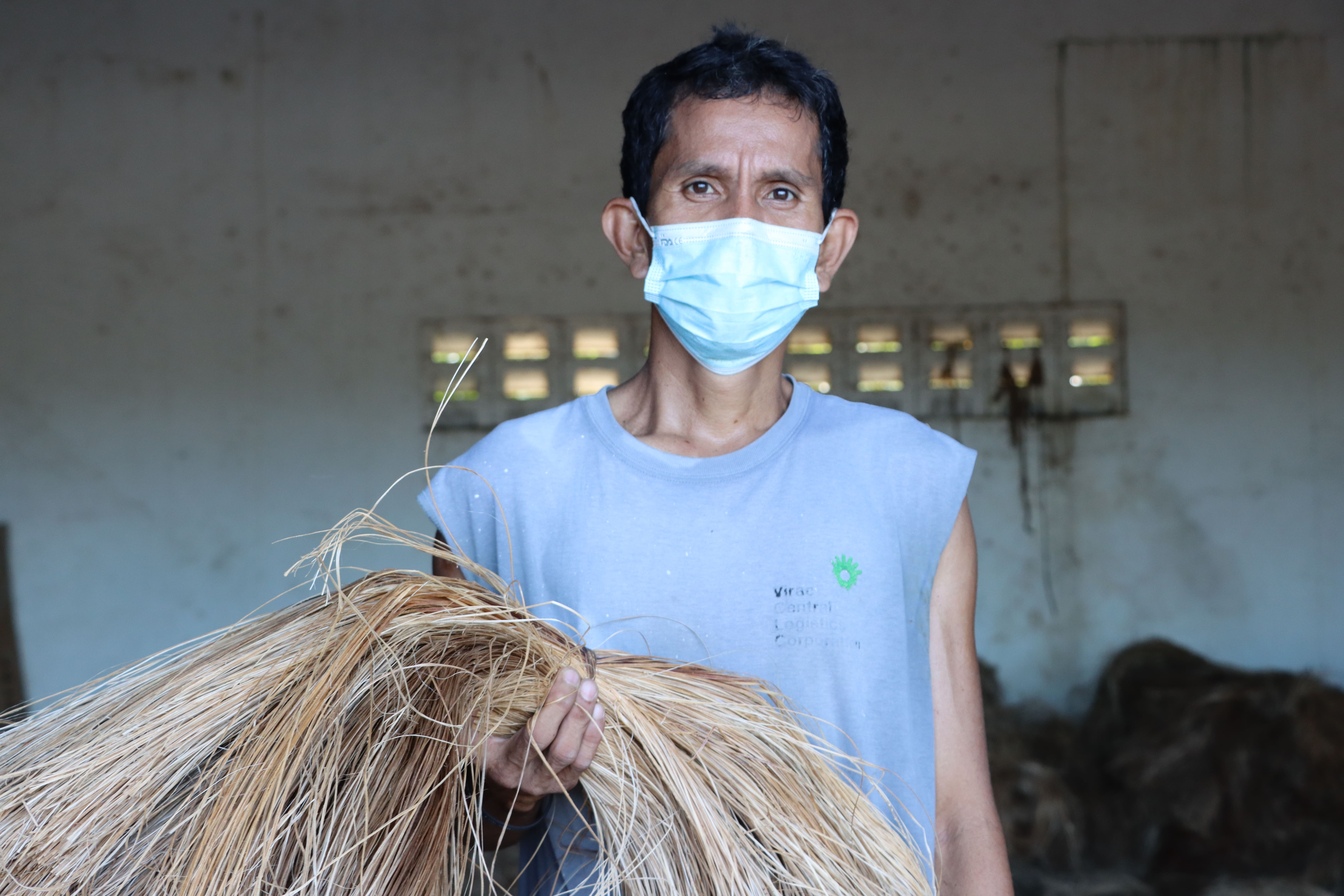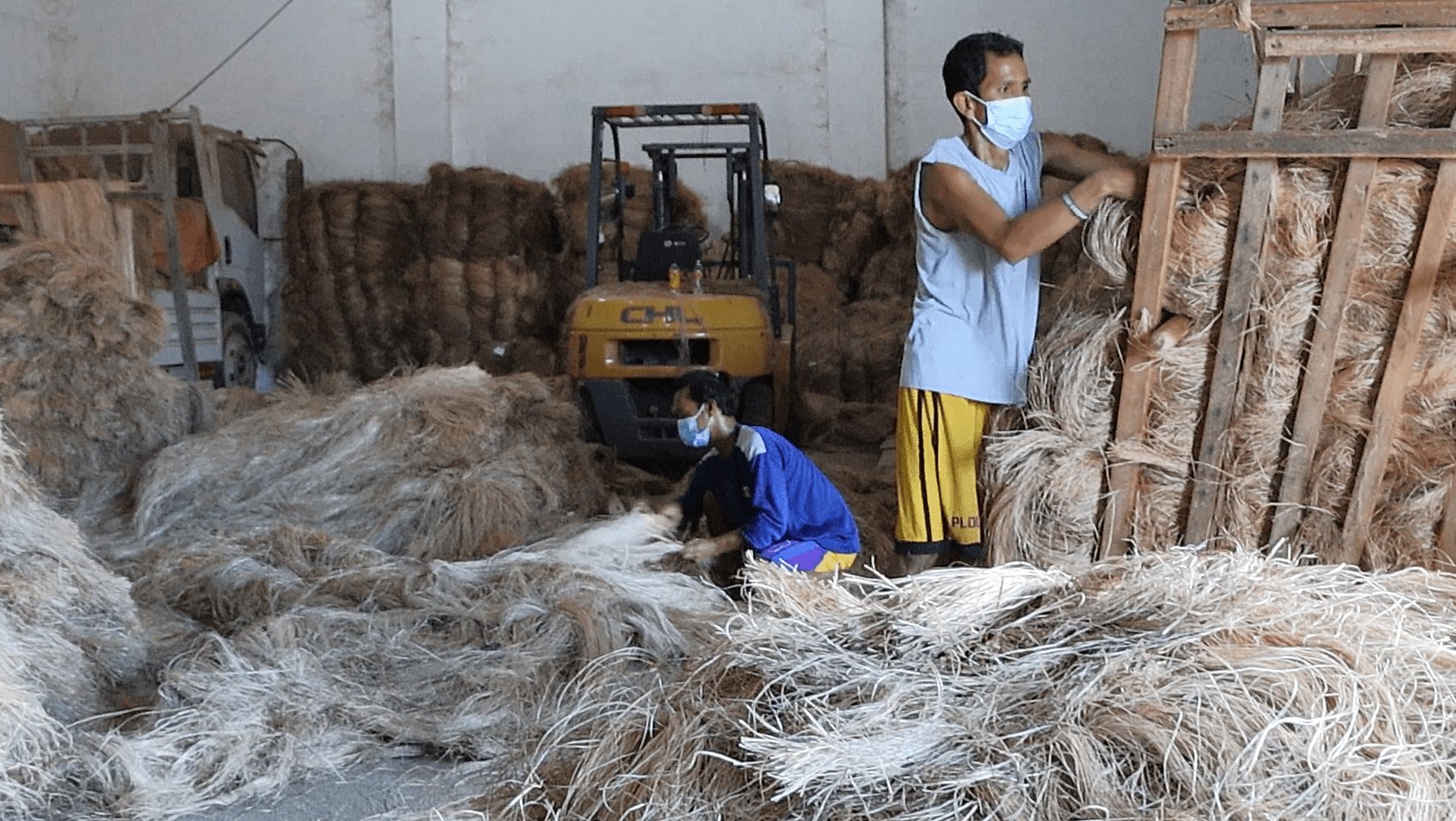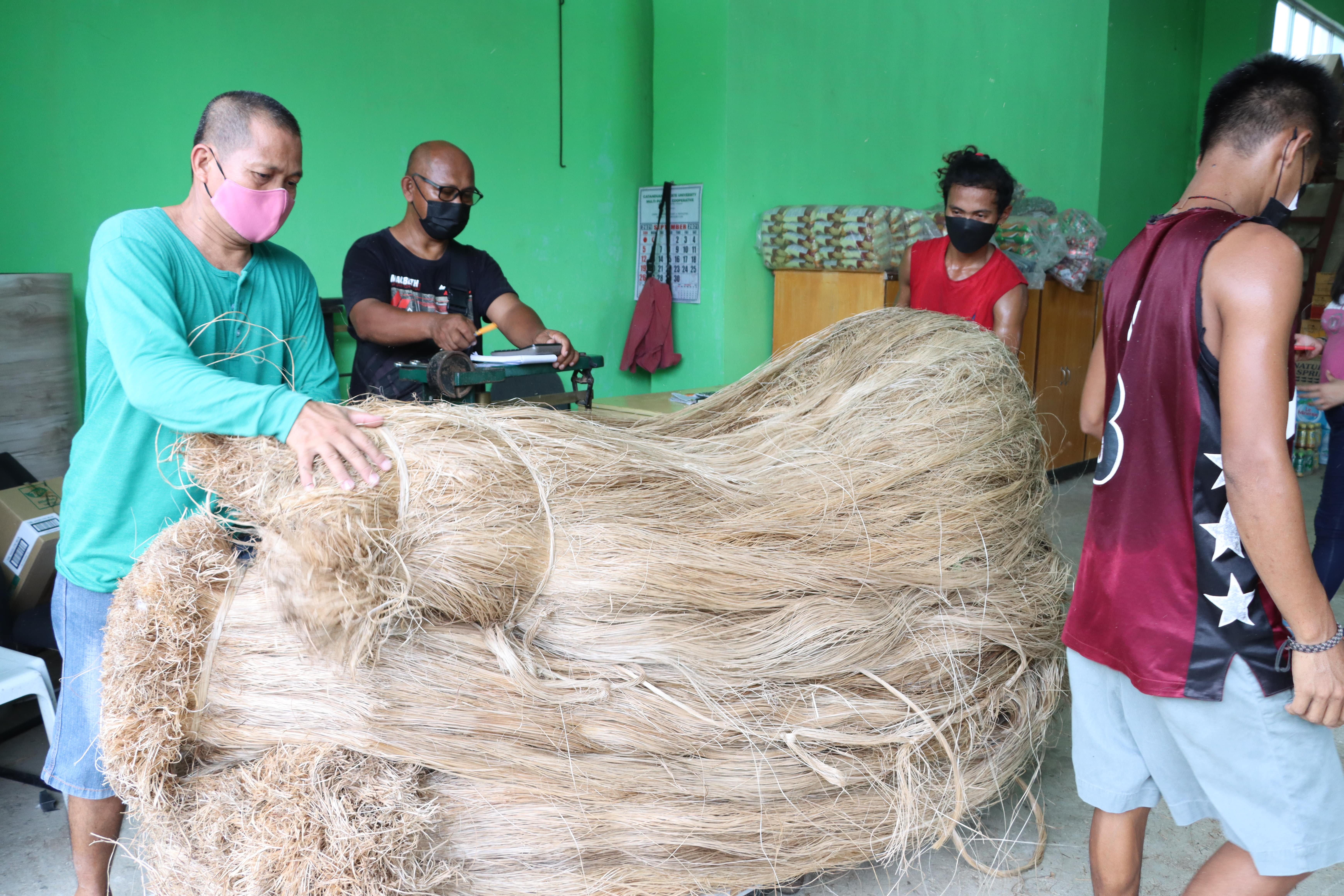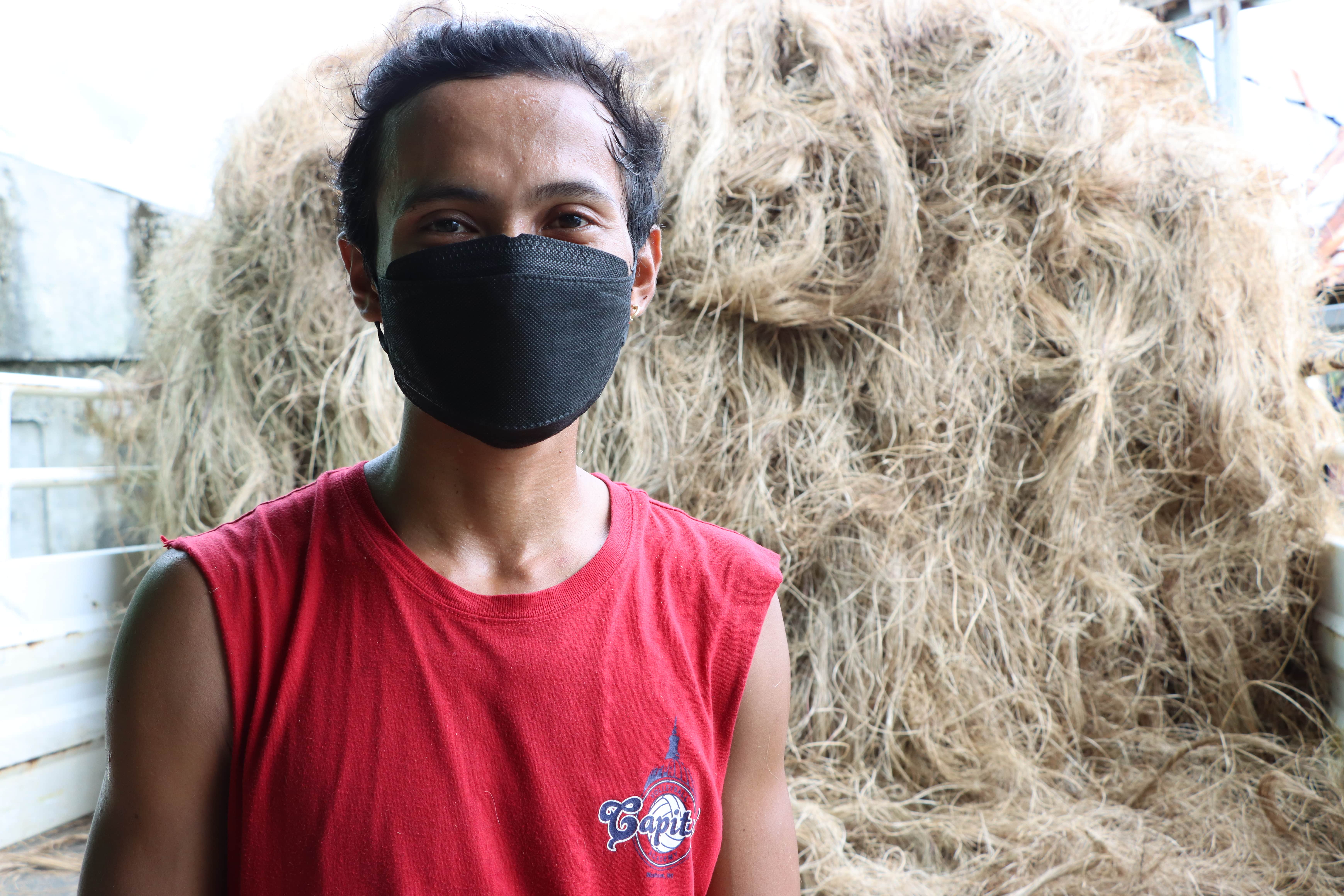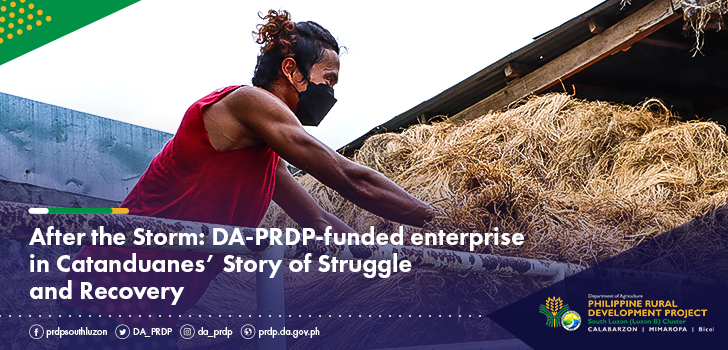
After the Storm: DA-PRDP-funded enterprise in Catanduanes’ Story of Struggle and Recovery
Alex Camu and Richard Agnote do not mind multitasking as classifier, laborer, and sorter at the Abaca Fiber Processing and Trading Enterprise (AFPTE) Main Warehouse in Barangay Sipi, Bato, Catanduanes. They have seen this coming after Supertyphoon Rolly hit the province on November 1, 2020, leaving some PhP400 million-worth of damage to abaca, its main agricultural commodity.
“Naghanap na ng ibang trabaho ‘yung iba naming kasama dito, umalis muna sila kasi mahina ang income,” said Camu.
As projected, three months after the typhoon, abaca production in the municipalities, which supply 75% of the enterprise development (I-REAP) subproject’s abaca fiber, began to decline. This situation was worsened by the increased incidence of abaca diseases in municipalities with minor typhoon damage.
According to Pinoy Lingap-Damayan Multipurpose Cooperative (PLDC) General Manager Antonio Jimenez Jr., collection severely decreased, due to the effects of the typhoon.
“Dati nakakolekta kami ng 60 to 65 tons a month. Ngayon mga 20 to 23 tons na lang ang nakokolekta namin dahil doon sa epekto ng bagyo. Aabot ng dalawang taon bago ito bumalik sa normal,” Jimenez expressed.
According to AFPTE Supervisor Honesto Sorreda Jr., the decrease in abaca supply and production in PLDC’s main warehouse compelled almost 50% of AFPTE’s workers to seek other sources of income.
“‘Yung ibang farmers na wala na talagang mapagkakitaan sa abaca ay lumilipat na sa construction o sa ibang lugar,” Sorreda related.
The Department of Agriculture – Philippine Rural Development Project (DA-PRDP) I-REAP Enterprise Status of Operations report shows that as of September 2021, AFPTE’s production and sales dropped to about 65%, due to typhoon damages that affected the supply of raw materials.
Despite the challenges in operations, PLDC did not close down. For PLDC, more than just doing business, sustaining the enterprise is a moral obligation to the strong 3,483 members of the cooperative, majority of them abaca farmers, who depend on the enterprise as their primary source of income. Jimenez said that he deemed it necessary to continue AFPTE’s operation to balance the abaca fiber trading competition in the province, and maintain the fair buying price of abaca at the barangay level.
Jimenez added that having a business plan prior to project implementation has helped the cooperative cope with business interruptions, and manage their resources, while waiting for the abaca rehabilitation and recovery in the province. The business plan served as their blueprint to keep the enterprise running and prevent net loss. As a strategy, PLDC currently maintains a price gap of PhP10 per kilogram every time they purchase abaca fiber at PhP82 to PhP92 per kilogram.
“Sa ngayon, bale ang ginagawa namin, sinisiguro lang namin na bawat transaction na papasukan namin, bawat labas ng pera, kailangan sigurado na maibabalik ‘yun.Tuloy-tuloy naman ang operation, huwag lang na tuloy-tuloy na palugi, mahirap siya. Nangyari na ‘yan noon sa amin. Sa ngayon, kahit konti, basta dire-diretso. Basta ‘yung bawat transaction, may kita kami, kahit papaano,” Jimenez said.
He also acknowledged the support of the DA through the Agricultural Credit Policy Council (ACPC), which approved their application as lending conduit for the Survival and Recovery (SURE), Agri-Negosyo (ANYO), and Kapital Access for Young Agripreneurs (KAYA) Loan Programs. Jimenez assured that over 1,300 abaca farmer-members of PLDC benefitted from the PhP40 million loan program, which provided financing assistance worth up to PhP25,000 per borrower, and payable for three years at zero interest rate.
Nelson Alcantara, an abaca classifier at the AFPTE’s satellite warehouse in Viga, Catanduanes was among the PLDC’s farmer-members who availed of the said loan program. Alcantara invested in six piglets to start a small piggery.
Meanwhile, Rico Arcilla, a laborer at the satellite warehouse, said that he opted to stay because unlike construction jobs, which are temporary, work in PLDC is more stable and sustainable.
AFPTE received an adjectival rating of Satisfactory during the recently conducted Mobile Operation and Maintenance Audit System (OMAS) and Enterprise Assessment (EA) of the DA-PRDP’s Monitoring and Evaluation (M&E) Unit and I-REAP component. Jimenez welcomed the PRDP OMAS team’s recommendations and assured them that PLDC will apply them and maximize the interventions provided by the Project to fully recover.
The PhP10.21 million-worth AFPTE is a start-up medium enterprise funded under the DA-PRDP I-REAP component. The Project was completed on April 25, 2019, and is engaged in abaca processing and trading in Catanduanes, the country’s top producer of abaca. (Annielyn L. Baleza, DA RAFIS V/PRDP RPCO V InfoACE Unit with reports from Angelica N. Peñano, PRDP RPCO V I-REAP)
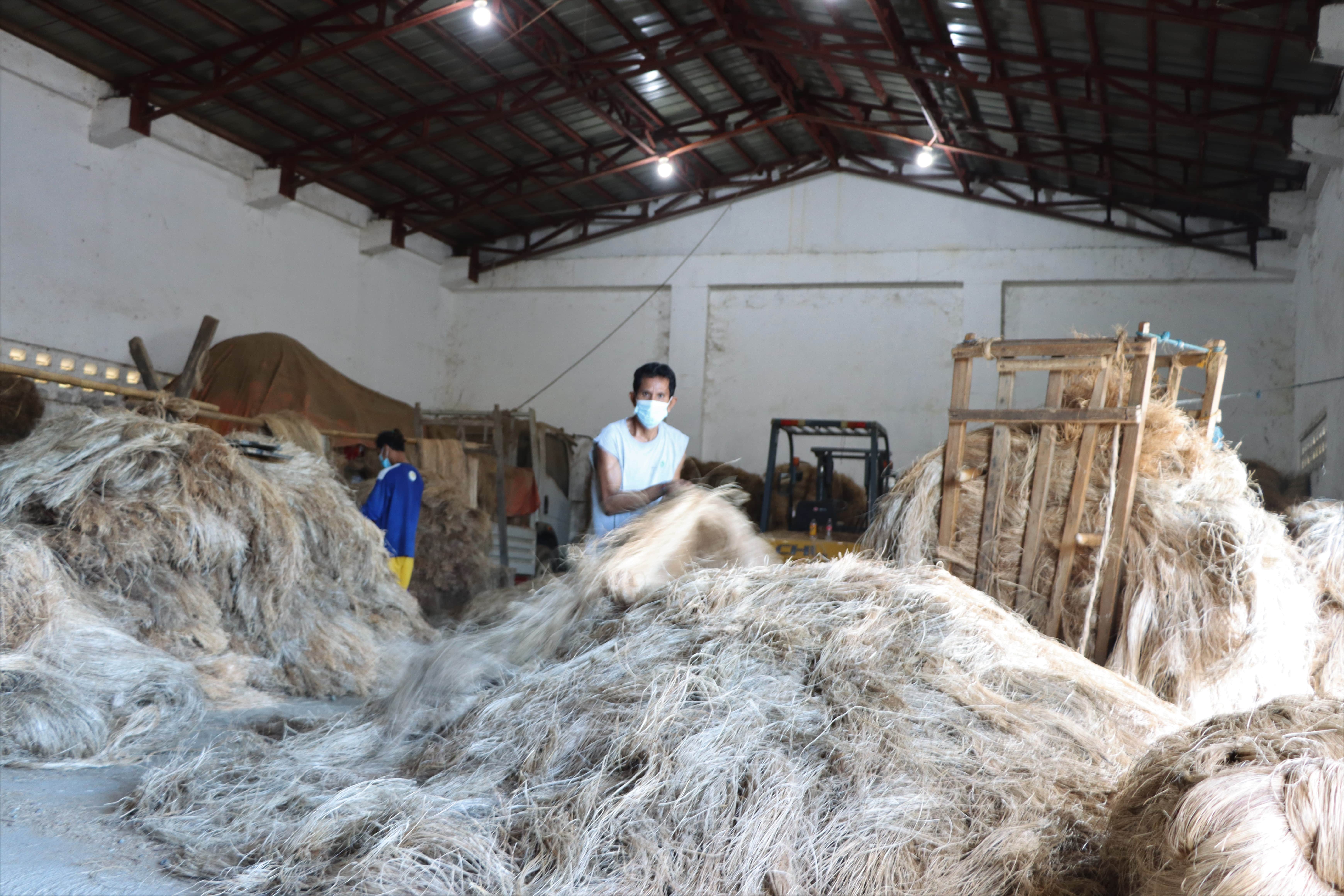
PLDC members Alex Camu and Richard Agnote are among the remaining workers of the AFPTE Main Warehouse in Brgy. Sipi, Bato, Catanduanes. The decline in abaca production forced almost 50% of the I-REAP subproject to look for other sources of income, while waiting for the full rehabilitation and recovery of abaca plantations in Catanduanes.
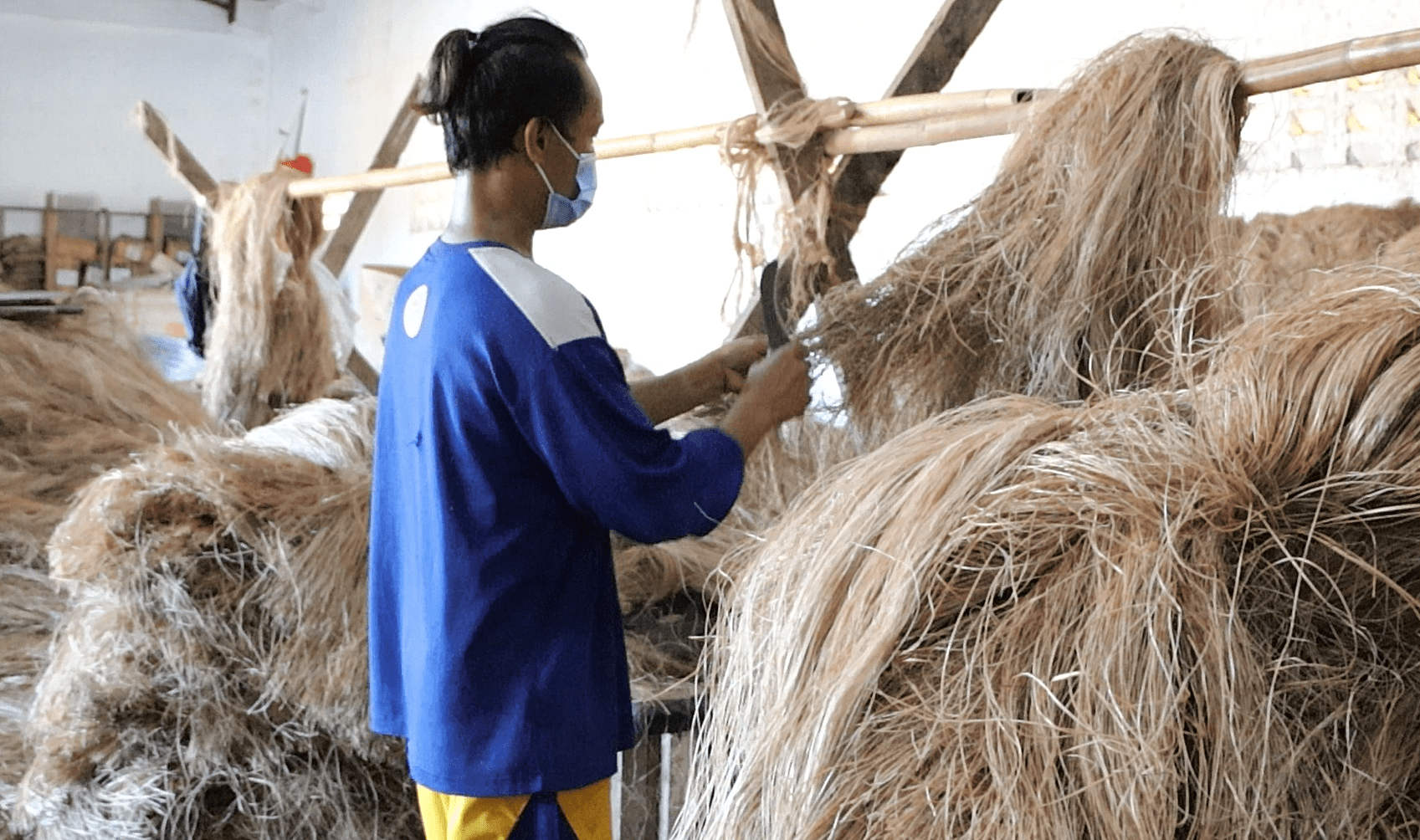
Richard Agnote, a laborer at the AFPTE Main Warehouse in Brgy. Sipi, Bato, Catanduanes processes the delivered abaca fiber.
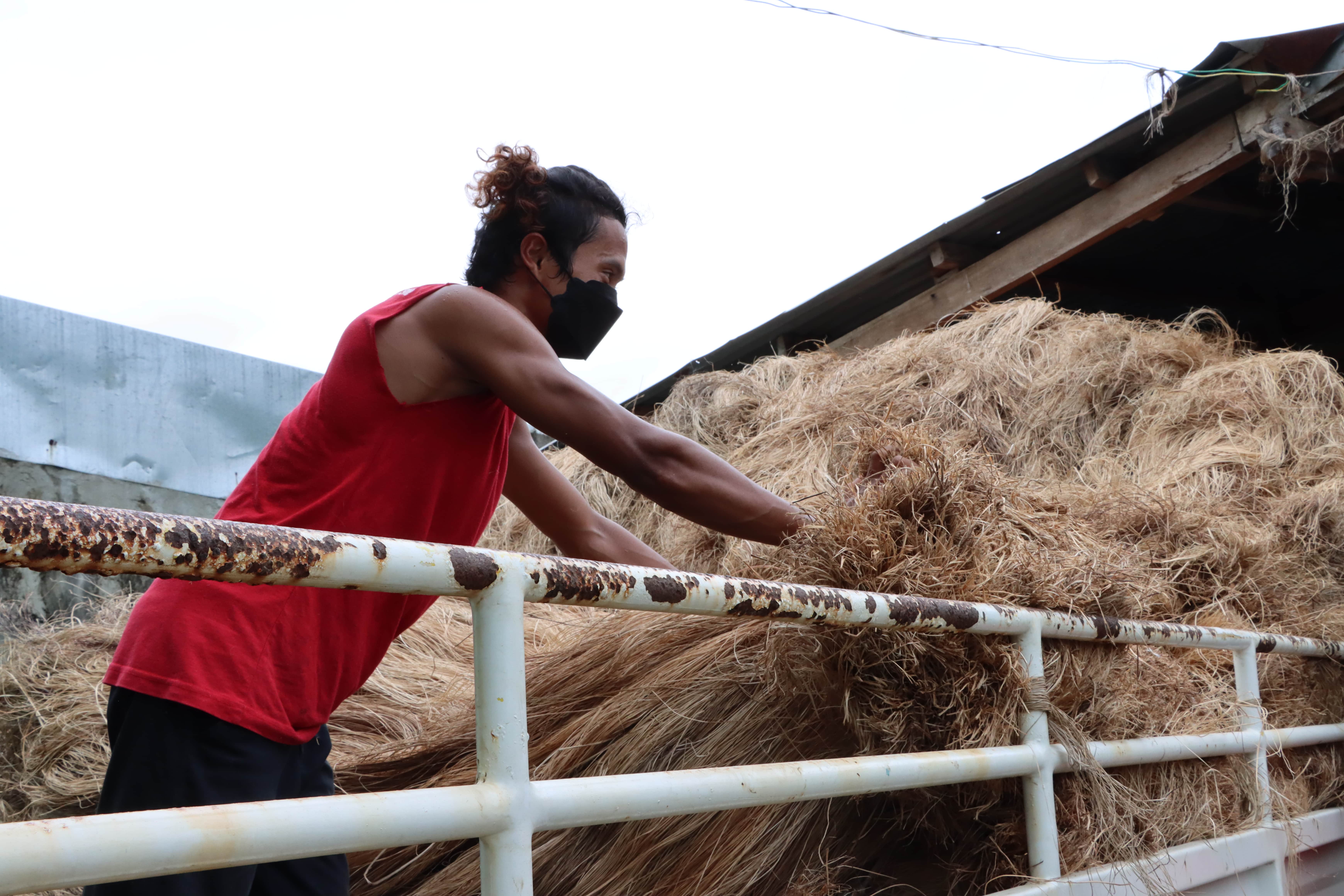
The AFPTE Satellite Warehouse in Viga, Catanduanes collects about 3,600 kilograms of abaca fiber from four municipalities in the province that are delivered to the Main Warehouse in Brgy. Sipi Bato, Catanduanes weekly.

